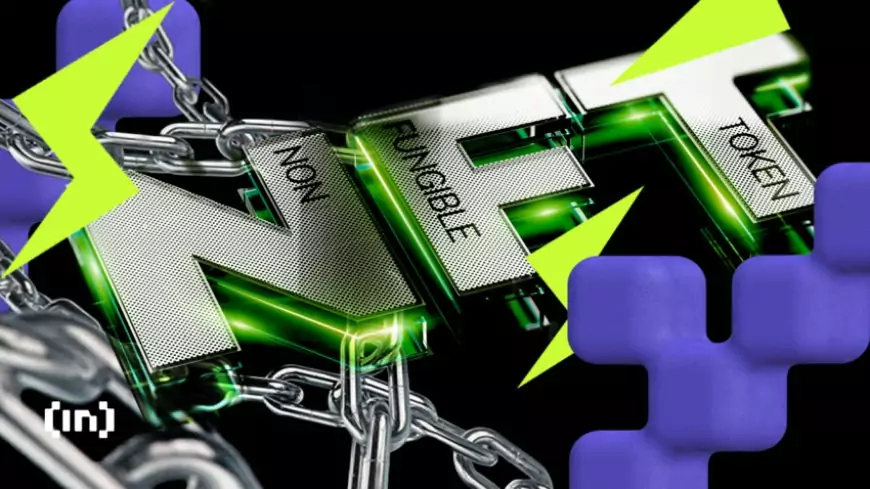Why Are NFT Floor Prices Crashing?
Non-fungible tokens have suffered another market downturn, which has left the majority of blue-chip NFT collections like Bored Ape Yacht Club dropping to a two-year-low in their floor prices

Non-fungible tokens have suffered another market downturn, which has left the majority of blue-chip NFT collections like Bored Ape Yacht Club dropping to a two-year-low in their floor prices. The recent NFT market fall has attracted many investors and influencers in the nascent NFT sector to point fingers at who should bear the blame.
Traders Blame Blur For The NFT Market Crash
NFT marketplace Blur has found itself in a narrow corner after several investors and influencers blamed it for the recent sudden fall of NFT floor prices. Recently, many NFTs, including Azuki, Pudgy Penguins, and Bored Ape Yacht Club, have dropped over 50% in their floor prices.
Launched in October 2022, Blur is a non-fungible token marketplace and data aggregator that provides access to various cutting-edge portfolio options and NFT analytics. The NFT market platform also allows investors to buy blue-chip NFTs with a smaller upfront payment, similar to a down payment on a house.
Earlier this year, the NFT market promised a token airdrop in its bid to take over the NFT market dominance. A few days after delivering its promise, Blur outperformed OpenSea to become the most traded exchange in trading volume. Amid falling in NFT floor prices, traders have blamed Blur’s incentivized trading model for the market downfall.
Did Blur Kill The NFT Market?
Unfortunately, Blur’s incentive trading model has begun bearing negative results. The whale traders who initially took advantage of the rewards model are now losing their funds or indirectly withdrawing other investors’ funds from Blur’s NFT auction pool. The NFT market has created fear, uncertainty, and doubt “FUD” in the non-fungible token world.
In recent days, several traders and crypto influencers have shared what they see as negative effects of Blur’s incentive trading model. In a July 4 blog post, Trevor Owen, the General Partner of Bitcoin Frontier Fund, wrote that many market platforms compete to dominate the market by offering the cheapest NFTs. This move has hurtled the NFT market. He added:
“Blur is spending tens of millions of $$ on airdrop incentives to Spending tens of millions to sink the NFT market and control the floor. This is directly affecting your stocks. Every $$ they spend proportionally reduces the NFT market.” Owen added.
NFT Marketplaces are the ones tanking the NFT market
I'm fully convinced @xerocooleth is right
Here's why
The marketplace wars are not fought over volume
They're fought over having the lowest floor
Whoever controls the floor controls the market & future volume
This means…
— trevor.btc (@TO) July 4, 2023
Trevor Owen’s sentiments have attracted the attention of NFT influencer Xero, who has also pointed to a recent cascade of NFT loan payoffs, most of them through Blur’s own Blend lending platform. Xero noted that Blur had encouraged more risky behavior. , as traders were over-leveraged to buy and resell NFTs. He further explained:
“Accounts that had nothing to do with buying dozens or more of a collection put themselves in dangerous positions. The incentivization to sell and bid low comes from obtaining Blur tokens, so they’re just doing what the market tells them.”
Here's who makes NFTs go to zero ????
If you're wondering what just happened to all the floor prices.
and whether your Azuki or MAYC goes to zero for real, let me catch you up.
If you look into the blur data, you'll see that people were over leveraging themselves, in ways they… pic.twitter.com/mSkvlhtB97
— xero ???? (@xerocooleth) July 4, 2023
Blur Refutes Market Pollution Claims
Blur has refuted any claims or sentiment about the recent NFT floor price dropdown. In a recent blog post, Tieshun “Pacman” Roquerre, the founder of Blur, remarked that this is not the first time NFTs have faced a similar market cycle. However, he pointed to the controversial launch of the Azuki Elementals collection last week for removing liquidity from the NFT market. Pacman wrote:
“One of the few times the price floors went up together was when we injected liquidity into NFTs through our airdrop. One of the few times the price floors went down together was when $40 million of liquidity was withdrawn through the creation of Azuki.”
I don't usually comment on these kinds of discussions but I will say this:
We launched in October 22. Since then, some floor prices have gone up, some floor prices have gone down.
One of the few times floor prices went up in concert was when we injected liquidity into nfts via… https://t.co/8bsZcvDuD9
— Pacman | Blur.io (@PacmanBlur) July 5, 2023
It’s not the first time Blur has faced a bad reputation in the NFT market manipulation. Earlier this year, Blur was accused of market manipulation through wash trading. By description, wash trading is a form of market manipulation in which an entity simultaneously sells and buys the same financial instruments, creating a false impression of market activity. At the time, Blur accrued more than 80% of wash trading.







